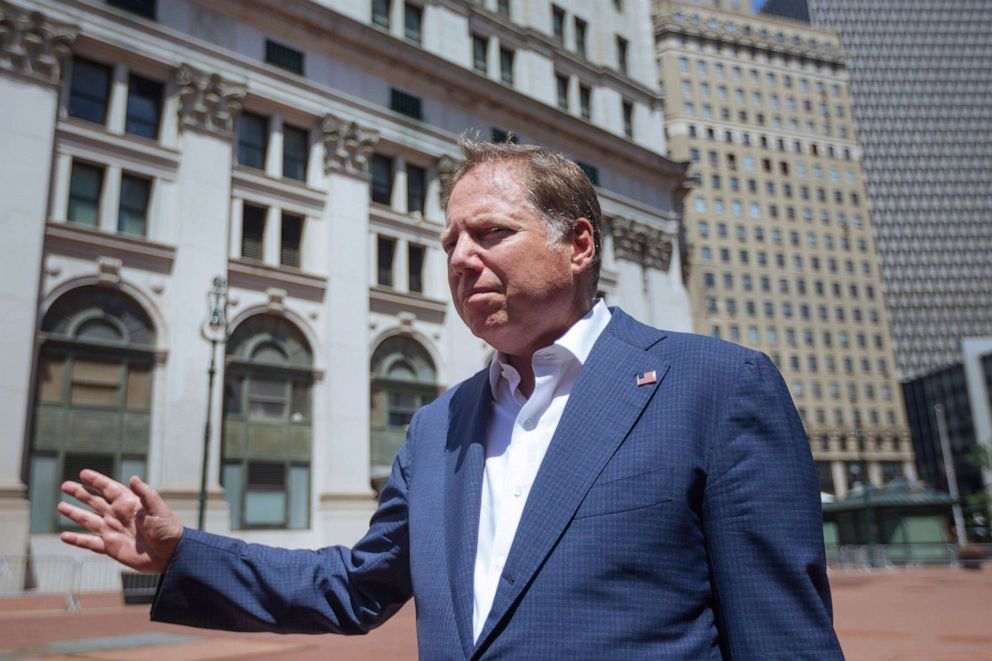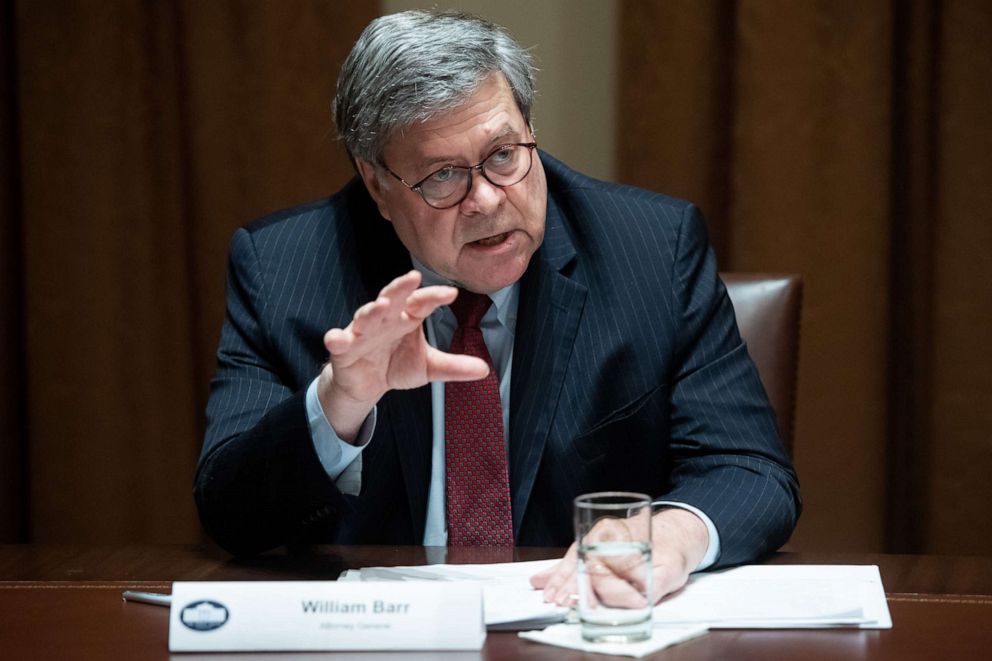Dems urge Trump's new pick for SDNY to withdraw from consideration
Jay Clayton's appearance came ahead of his expected nomination.
Jay Clayton, the Trump administration's controversial pick to become U.S. attorney in the Southern District of New York, testified on Capitol Hill Thursday afternoon, as his anticipated nomination to the federal district court continued to face stiff criticism from Democrats.
Clayton, the current chairman of the Securities and Exchange Commission, addressed his potential nomination as he began his testimony at a hearing entitled Capital Markets and Emergency Lending in the COVID-19 Era, proclaiming he is "fully committed" to directing his attention to his ongoing role at the SEC.
"I have a long-held deep respect for the work of the Southern District, which is recognized throughout our nation and internationally for enforcing the law, pursuing justice, without fear or favor," Clayton testified. "My deep personal respect is largely a result of many years working with the Southern District, and its distinguished alumni, including the senior personnel with the SEC. I recognize that the nomination process is multifaceted and uncertain. It's clear the process does not require my current attention."
Despite the stated focus of the hearing on the impact of the pandemic, House Financial Services Committee Democrats grilled him on his expected nomination.
Rep. Brad Sherman, the chairman of the Subcommittee on Investor Protection, Entrepreneurship, and Capital Markets, expressed hope that Clayton would not accept the nomination and questioned his motives for having interest in the job.
"I hope you're here six months from now," Sherman, D-Calif., said, urging Clayton to withdraw from consideration for the post. "Keeping your name there simply weakens your gravitas with regard to the SEC and doesn't allow you to reduce your commute."
Rep. Maxine Waters, the chairwoman of the House Financial Services Committee, told Clayton she is "deeply concerned" that his pending nomination could lead President Donald Trump and Attorney General William Barr "to interfere with your ability to independently and effectively oversee" the SEC.
Waters asked Clayton to recuse himself from "any and all matters before the SEC that directly or indirectly" involve the president "that may create the appearance that you're actually serving as a special favor to President Trump in order to obtain a position" that Trump and Barr "have highly politicized."
"I'm going to continue to do what I've always done at the SEC, which is to pursue all matters with independence and consult with ethics on any issues that would give the appearance of not having independence," Clayton answered.
Democrats also pressed Clayton to recuse himself from any matters involving the president and his associates not only in his current role as SEC chairman but also in his potential role as a U.S. attorney.
Clayton stressed that he strives to maintain independence, contending that potential recusal is "a process that’s way down the road" while pledging to "follow all ethical rules."
Trump has not yet formally nominated Clayton to the post, which requires Senate confirmation. Both of New York's senators, Charles Schumer and Kirsten Gillibrand, have vowed to oppose Clayton, who was confirmed as SEC chairman in a bipartisan 61-37 vote on May 2, 2017.
Barr announced in a news release late last Friday night that Geoffrey Berman, who served as the U.S. attorney for the Southern District of New York, would resign from the position to create room for Clayton, but Berman soon issued a statement refusing to step down voluntarily, directly contradicting the attorney general.

Barr then released a statement Saturday announcing he asked Trump to fire Berman -- effective immediately -- in light of his resistance, complaining Berman chose to create a "public spectacle over public service."
Later Saturday, Berman agreed to vacate his post "effective immediately" after Trump sought to distance himself from the firing. Berman also noted that Barr decided to "respect the normal operation of law and have Deputy U.S. Attorney Audrey Strauss become Acting U.S. Attorney," instead of Barr’s hand-picked replacement, Craig Carpenito.
Barr is facing calls for his resignation and threats of impeachment from Democrats. He's expected to testify at the House Judiciary Committee on July 28.

Under Berman's leadership, the office prosecuted the president's former personal attorney Michael Cohen and filed sex trafficking charges against Jeffrey Epstein, a friend of the president who killed himself in federal jail less than two months later.
Trump's current personal attorney, Rudy Giuliani, continues to be investigated by the Manhattan office -- facing scrutiny for his financial ties to Ukraine, according to sources.
White House Press Secretary Kayleigh McEnany denied Berman was fired for investigating Trump's associates, telling reporters that Clayton "wanted to go back to New York City" and Trump "wanted to nominate him to this position in SDNY to keep him in the government as he returns to New York.
Rep. Carolyn Maloney, D-New York, called the Berman ouster "a scandal" and "blatant abuse of power" that she finds "extremely troubling."
Clayton declined to discuss many details of his nomination with Maloney but revealed that he first expressed interest in the position with Trump and Barr earlier this month.
"I need to go back to New York," Clayton testified. "This is something I've been talking about for a while, consulting with people as to whether this would make sense for me to continue with public service."
ABC News' Alex Mallin contributed to this report



